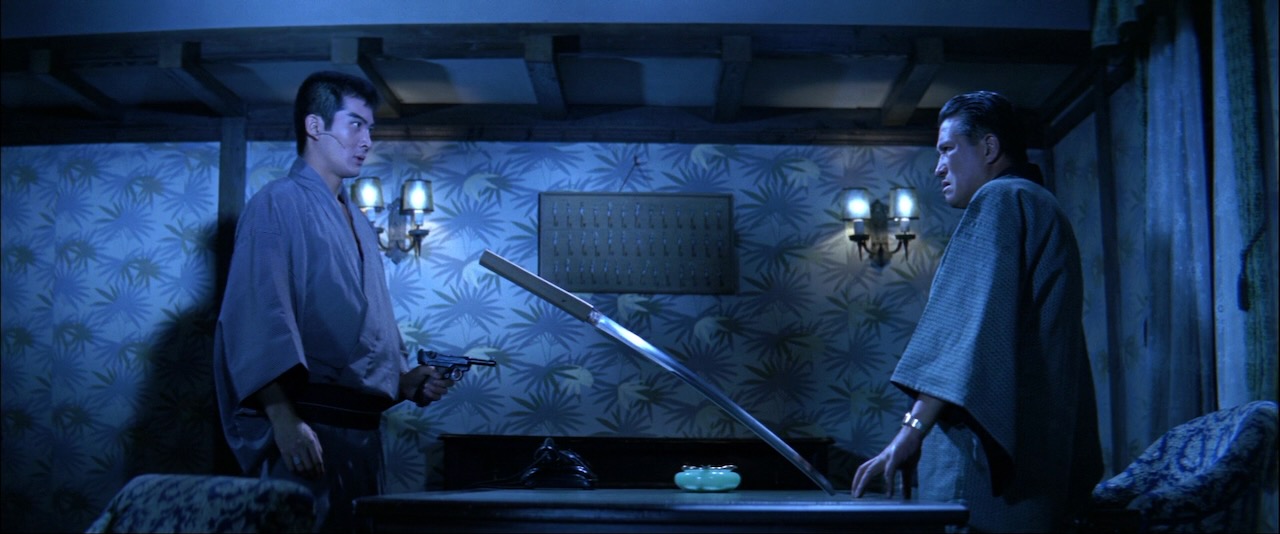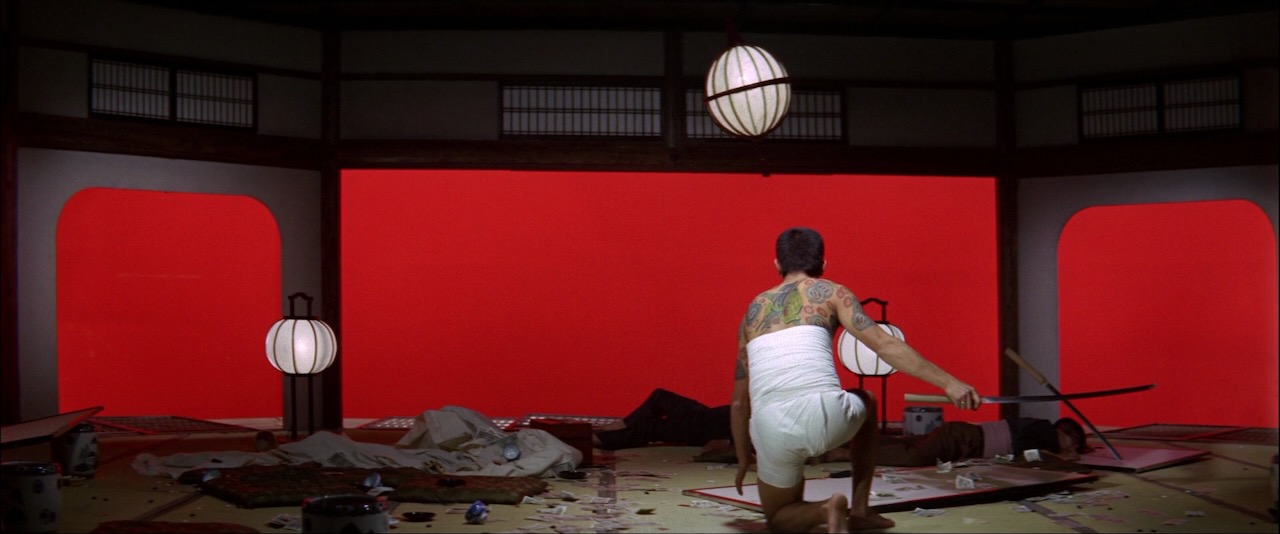Same idea as Serpent’s Path – this time Sho Aikawa’s daughter is the victim, and he dispatches some guy he assumes to be the killer within ten minutes of movie time. Now what?
A guy who looks suspiciously like Creepy but is another actor – somebody Sho presumably killed horribly in Dead or Alive, and the star of Kitano’s Getting Any? – offers the directionless Sho a job at his “import/export” company. The business of this company involves Sho stamping an endless pile of documents in a shabby office while the other guys have some kinda shakedown/blackmail/hitman thing going on. These guys appear small-time, so the boss gets involved, and the boss’s boss, and they want to recruit Sho and put down the others, but they don’t go down so easy. Similar look and tone to the other movie, but goes in a more traditionally yakuza direction.

In here somewhere is Chief Ren Osugi of Nightmare Detective… Ren’s Sonatine and Fireworks costar Susumu Terajima… Kill Bill boss Shun Sugata… but I didn’t catch character names, so I’ll sort it out during the next Kitano or Miike binge.
Kurosawa is a White Dog fan:

Great writeup by John Lehtonen. A small piece:
Eyes of the Spider is a film of emptiness, its protagonist hollowed at the outset. Empty time and empty people, and what is projected onto and, eventually, out of this emptiness. Tonally and generically dynamic, it moves its cipher hero (and Aikawa’s iconographic image) through a variety of generic scenarios and roles: the husband, the salaryman, the yakuza.
























